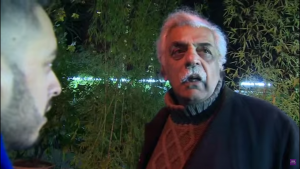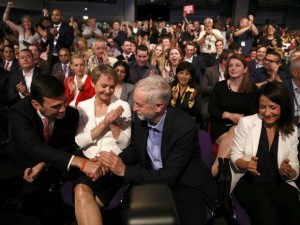Tariq Ali's Blog, page 4
December 15, 2015
“A war was begun, in England, against Jeremy Corbyn,”
The assault on Stop the War is really aimed at Jeremy Corbyn
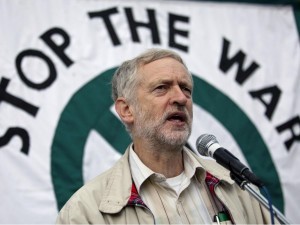 Stop the War, of which I am a founder member, was created to oppose the crude war of revenge against Afghanistan in 2001. I remember arguing at the time that the war would be a disaster for Afghans, it would destabilise neighbouring Pakistan and would end without solving anything.
Stop the War, of which I am a founder member, was created to oppose the crude war of revenge against Afghanistan in 2001. I remember arguing at the time that the war would be a disaster for Afghans, it would destabilise neighbouring Pakistan and would end without solving anything.
I was wrong on one point. It has not yet ended. We denounced the war in Iraq as being based on a huge lie. A million lives later the country is still a wreck, its infrastructure destroyed, the political vacuum has produced Isis (even Obama acknowledged this fact) and the Western politicians responsible for the crimes walk free. At that time a lot of stage Kurds were brought into BBC studios to support the war.
We campaigned as a small minority against Nato’s six-month assault on Libya that cost between 20 and 30 thousand lives and has left the country divided into three jihadi zones (Isis, al-Qaeda and local variants of both). In neither of these cases did the English media conduct a concerted witch-hunt to denounce us as a malign force in British politics.
So what occasions the current assault on Stop the War, with some prominent Greens even arguing a “loss of moral compass”? The answer is simple. In addition to the wars in the Middle East there is a nasty and unpleasant war being waged in England, targeting Jeremy Corbyn. Some had hoped that a majority of the PLP would vote for bombing Syria. This did not happen. Hilary Benn’s pathetic pro-war speech (he voted for the Iraq war as well) was boosted beyond belief by a media and political establishment desperate to replace Corbyn.
How to explain the majority of Labour MPs who voted against? Simple. They were “bullied” by Stop the War supporters. Three pages of this tripe were published in this paper. The real bully was the Bullingdon boy in Parliament, accusing anti-war MPs of being terrorist sympathisers just like Bush at the outset of the “war against terror”. But no mention whatsoever of the wavering Labour MPs flattered into voting for the bombing by tutorials on Syria at the Ministry of Defence.
Did anyone bully the staunch anti-war contingent of Scottish MPs or did they decide on their own like the 70 per cent of Scots opposed to war?
In the forefront of this campaign against Corbyn – who made no attempt to conceal his political views on domestic and foreign policy prior to his election – are his own Thatcherite colleagues on front and back benches. No opponent in the Conservative Party has ever aroused such fixity of hatred and rancour as their newly elected leader.
The bile is reserved for those who refuse to abandon social democracy. Realising that anti-austerity arguments are popular, the scoundrels have switched to “patriotism”, to defence issues, to the safety of the realm, sacralising the ridiculous Trident missiles in the process. A serving general is wheeled on to breakfast shows to suggest that if Corbyn is elected the British Army might mutiny. Since Corbyn is a founder member of Stop the War, the propaganda assault is essentially designed to weaken and destroy him.
Stop the War is opposed to foreign interventions and especially where the British Government is involved. There is a long tradition of such activity in British politics, starting with William Morris’s observation in 1885 that the defeat of the British Army in the Sudan under General Gordon at the hands of the Mahdi (a religious leader par excellence), was a positive event insofar it weakened the British Empire. He was writing as a socialist. During the 1950s CND prevented Britain from becoming a replica of the United States or West Germany and over a hundred Labour MPs were at one point members of this movement that won over the majority of the Labour Party before the capitulation of Aneurin Bevan reversed the decision in the following year.
Stop the War was founded in different times. It is and has been a coalition of individuals and organisations with differing views on many issues. This is as it should be and always has been with broad single-issue campaigns. It does NOT take positions on the demerits or otherwise of the Taliban, Saddam, Gaddafi, Assad. It is in favour of the withdrawal of ALL foreign troops (this includes the Russians) and bomber jets. The arguments against the war deployed by Stop the War are not all that different from some conservative columnists who cannot be bullied: Simon Jenkins, Peter Hitchens, Peter Oborne. None of the three are Corbynistas.
We have been consistent over the years, which is why the organisation has survived. There is no similar body anywhere else. The recent upsurge in activities against the Syrian debacle is due to the growing realisation that the murderous chaos in the region that has produced such misery will get worse with more bombs. The sight of hundreds of thousands of Syrian war refugees seeking shelter in Europe has made many realise that the way to peace is not through a war waged by the US, Europe and Russia.
That is why jumping on the anti-Stop the War bandwagon by some leading Greens suggests a loss of political nerve. Is it too cynical to detect in this behaviour a fear that the Pied Piper of Islington is attracting the electoral support of large numbers of hitherto Green supporters and needs to be denounced?
The “moral compass” of the anti-war movement has not shifted. It is no better or worse since the day it was founded. Meanwhile the wars continue. I hope there will be a large turnout on Saturday.
Article originally published in the Independent.
November 25, 2015
Isis in Paris
So ISIS has claimed the attacks as a response to France bombing the ‘caliphate’ in the Middle East. That Hollande/Valls are warmongers is beyond dispute . Ironically they were preparing to topple the Assad regime (till Washington insisted on a delay) which would have made them ISIS allies in the region. In fact the bulk of the opposition in Syria regard Assad as the primary contradiction and were also hoping the West would deliver another regime change. Had they done so a new civil war would have erupted between rival jihadi groups and who knows which of them the US/EU would have supported.
ISIS has hit the French capital and killed over a hundred citizens with double that number injured. I know the West does the same and, in fact, kills tens of thousands, but this clash of fundamentalisms leads nowhere. The West is NOT morally superior to the jihadis. Why is a public execution with a sword worse than an indiscriminate drone attack? Neither can nor should be supported
The point has often been made that both al Qaeda and ISIS are the result of imperial wars in Afghanistan and Iraq and this is undoubtedly the case, but its not enough. The suicide of secular nationalism and the impotence of the tiny progressive groups as a result of both local repression and decline in mass support has to be taken into account. This process has pushed the Saudi regime to the fore and both al-Qaida and ISIS are under the strong influence of Wahhabiism which is a tiny minority within Sunni Islam.
There are three important pre-requisites to re-stabilising the region:
end of Western support to the extended Saudi royal family; end of all Western intervention in the region; a single Israeli/Palestinian state with equal rights for all its citizens. As long as this doesn’t happen, political freaks and monsters will continue to proliferate.
Nothing justifies the killing of innocents in Paris or in any city of the Arab East.
September 23, 2015
VIDEO: The Twilight of Democracy – at the Festival of Dangerous Ideas 2015
September 16, 2015
The Left in Europe
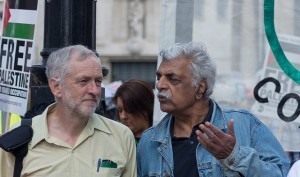 With the rise of left-populist parties in Europe, and the election of the most left-wing leader of Labour in the party’s history, the European left seems to be entering a new era. Tariq Ali, alongside Fabien Escalona and Raffaele Simone, discusses the prospects for the new left in Europe on Culture France radio.
With the rise of left-populist parties in Europe, and the election of the most left-wing leader of Labour in the party’s history, the European left seems to be entering a new era. Tariq Ali, alongside Fabien Escalona and Raffaele Simone, discusses the prospects for the new left in Europe on Culture France radio.
To listen to the full show (in French) visit the France Culture website.
Cap à bâbord dans CulturesMonde, nous discuterons toute cette semaine de la gauche ou des gauches dans le monde.
Nous resterons aujourd’hui et demain sur le continent européen.. où on a assisté ces deux dernières années à l’émergence fulgurante de ” gauches alternatives” avec les mouvements tels que Podemos en Espagne et Syriza en Grèce… Nous discuterons des difficultés aussi pour ces gauches dites radicales – ou non – de tenir promesses une fois confrontées à l’exercice du pouvoir ici sur le vieux continent mais aussi de l’autre côté de l’Atlantique, où nous ferons le bilan des « gauches latines »…Nous irons du côté des Etats-Unis, aussi, où parait-il on ose prononcer le mot “socialisme” (c’est Bernie Sanders qui le dit).
Pour écouter l’émission complète ( en français ) visitez le site pour France Culture
Jeremy Corbyn’s victory means Labour’s living dead have been vanquished – and English politics has come to life again
The ironies of history never fail to surprise. Measured by any criteria, Jeremy Corbyn is the most left-wing leader in the history of the Labour Party. He understands that those who do evil abroad are unlikely to do much good at home. He is the staunchest anti-imperialist Member of Parliament.
A contrast with his political forebears proves this assertion. Keir Hardie’s socialism floundered on the battlefields of the First World War. Clement Attlee was a great reformer domestically, but abroad his government approved the nuking of Hiroshima and Nagasaki. Harold Wilson redistributed wealth but supported the US in Vietnam; Michael Foot as Leader of the Opposition was a rabid supporter of Margaret Thatcher’s war to retrieve the Malvinas/Falklands.
The Thatcherite Blair/Brown twins agreed to share power thus creating two power-hungry factions with no political differences except that Tony Blair hungered for both power and money. He gave us the wars in the former Yugoslavia and Iraq, while Gordon Brown was oblivious to the vulnerabilities of financialised capitalism and spent billions of taxpayers’ money bailing out banks that might have (after paying the depositors) been best left to croak. Both bureaucratised the Labour Party by neutering the party conference, reducing it to a tacky version of the US Democrats. All show, no substance. They denuded constituency Labour parties of the right to select their own prospective parliamentary candidates. This was the only way they could transform a large chunk of the Parliamentary Labour Party (PLP) into a collection of over-promoted office boys and girls together with bandwagon careerists.
Three of them were on regular display in the campaign to succeed another of their number, Ed Miliband. What is ironic is that Miliband’s reform of the party’s electoral system was designed to appease the Blairites and their media chums by eliminating what was left of trade union power in the party and opening it up to outsiders in the lame hope that more congenial voters would ensure the domination of extreme centre politics.
So confident were they, that a few Blairites gave Corbyn the necessary parliamentary votes to stand as a token lefty and reveal the party’s generosity and attachment to diversity. Who would have thought that it would backfire so sensationally? Certainly not Corbyn. Nor anyone else. The Guardian came out for Yvette Cooper, its Blairite columnists denouncing the dinosaur from Islington, forgetting that, for younger folk, dinosaurs are a much loved and missed species. The Daily Mirror backed Andy Burnham.
No one who knows or sees and hears Corbyn can doubt his authenticity. I have shared numerous platforms with him over the past 40 years. On the key issues he has remained steadfast. What appealed to the young, who transformed the campaign into a social movement, was precisely what alienated the traditional political and media cliques. Corbyn was untutored, discursive, too left-wing, wanted to reverse the privatisations of the railways and utilities, etc. Many who registered to vote for him did so because of this and to break from the bland, unimaginative and visionless New Labour.
Corbyn had underestimated the changes in Scotland, but these actually helped his campaign. A Scottish National Party cohort in parliament that wanted to ditch the redundant and over-priced Trident; an electrifying maiden speech by 20-year-old Mhairi Black that took on the Tories. All this helped the Corbyn campaign. If Scotland, why not England?
As Labour members elect their most left-wing leader, the overwhelming majority of the PLP is in the death grip of the right. Anyone listening to Sadiq Khan’s speech after being elected as Labour’s choice for London mayor would have noticed the difference with the Corbyn campaign. Khan’s clichés were a reminder of how isolated Corbyn will be in the PLP. Corbyn will call on the party to unite behind him. But there is no getting away from the fact that the PLP majority is opposed to his policies. I guess they will try to tire him out and force compromise after compromise to discredit him (remember Alexis Tsipras in Greece), but I doubt they’ll succeed.
Corbyn understands the key issues on which no compromise is possible. He’s been campaigning for them long enough. His closeness to the Green agenda is not a secret, and the single Green MP now has a solid supporter in the new Labour leader. Taking back public transport from the profiteers is another element; cheap public housing for the young and the old will help rebuild communities. A robust tax regime that reverses the decades of privileges afforded the rich will unleash a fierce offensive by the City and its media and political acolytes, but it’s considered absolutely necessary.
Since the late Seventies, the redistribution of wealth in favour of the rich and the very rich has risen faster in Britain than in any other country in the Organisation for Economic Co-operation and Development. Corbyn is not interested in power for its own sake or to amass personal wealth.
Within the party, Corbyn will undoubtedly move to restore democracy. It’s the only way for Labour supporters in the country to be properly represented in parliament. None of this is easy and that is why a powerful movement, a new model campaigning army outside Parliament remains essential. It is the only way to ensure that the Corbyn agenda is fulfilled. None of this will happen overnight, and supporters have to be patient and not scream from the sidelines.
Some Labour MPs will desert. After all, they happily supported austerity. But, whatever happens, it will no longer be possible for the self-censoring BBC to keep the views espoused by the new Labour leader off the screen. The living dead have been vanquished, if temporarily. English politics has come to life again.
Jeremy Corbyn and the Labour Party – Tariq Ali on Democracy Now
Jeremy Corbyn has been a member of the House of Commons since 1983 and has a long history of voting against his Labor Party, which had moved considerably to the right under Tony Blair and Gordon Brown. Corbyn’s victory presages the prospect of a return to the party’s socialist roots, championing the renationalization of public transportation, free university tuition, rent control, and a national maximum wage to cap the salaries of high earners. We speak to longtime British editor and writer Tariq Ali, who has known Corbyn for 40 years. He calls Corbyn the most left-wing leader in the history of the British Labor Party.
Democracy Now!, is an independent global news hour that airs weekdays on 1,300+ TV and radio stations Monday through Friday. Watch our livestream 8-9am ET: http://democracynow.org
Interview with ABC Australia
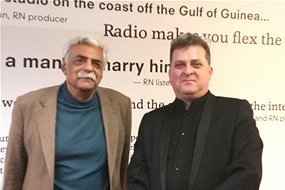 Following Tariq’s recent tour of Australia, ABC Local have uploaded their interview with him. Covering everything from#BlackLivesMatter and Australia’s draconian immigration policies to Billie Holiday’s Strange Fruit.
Following Tariq’s recent tour of Australia, ABC Local have uploaded their interview with him. Covering everything from#BlackLivesMatter and Australia’s draconian immigration policies to Billie Holiday’s Strange Fruit.
http://tariqali.org/wp-content/uploads/2015/09/r1470947_21508087.mp3
July 23, 2015
“The capitulation means more suffering” – On Syriza and austerity in Greece
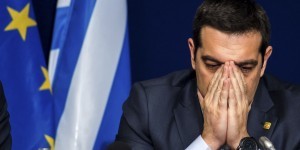 In the early hours of 16 July, the Greek parliament voted overwhelmingly to give up its sovereignty and become a semi-colonial appendage of the EU. A majority of the Syriza Central Committee had already come out against the capitulation. There had been a partial general strike. Tsipras had threatened to resign if fifty of his MPs voted against him. In the event six abstained and 32 voted against him, including Yanis Varoufakis, who had resigned as finance minister after the referendum, because, he said, ‘some Eurogroup participants’ had expressed a desire for his ‘“absence” from its meetings’. Now parliament had effectively declared the result of the referendum null and void. Outside in Syntagma Square thousands of young Syriza activists demonstrated against their government. Then the anarchists arrived with Molotov cocktails and the riot police responded with tear-gas grenades. Everyone else left the square and by midnight it was silent again. It’s difficult not to feel depressed by all this. Greece has been betrayed by a government that when elected only six months ago offered hope. As I walked away from the empty square the EU’s coup brought back memories of another.
In the early hours of 16 July, the Greek parliament voted overwhelmingly to give up its sovereignty and become a semi-colonial appendage of the EU. A majority of the Syriza Central Committee had already come out against the capitulation. There had been a partial general strike. Tsipras had threatened to resign if fifty of his MPs voted against him. In the event six abstained and 32 voted against him, including Yanis Varoufakis, who had resigned as finance minister after the referendum, because, he said, ‘some Eurogroup participants’ had expressed a desire for his ‘“absence” from its meetings’. Now parliament had effectively declared the result of the referendum null and void. Outside in Syntagma Square thousands of young Syriza activists demonstrated against their government. Then the anarchists arrived with Molotov cocktails and the riot police responded with tear-gas grenades. Everyone else left the square and by midnight it was silent again. It’s difficult not to feel depressed by all this. Greece has been betrayed by a government that when elected only six months ago offered hope. As I walked away from the empty square the EU’s coup brought back memories of another.
I first went to Greece at Easter 1967. The occasion was a peace conference in Athens honouring the left-wing Greek deputy, Grigoris Lambrakis, murdered by fascists in Salonika in 1963 as the police looked on, and later immortalised in Costa-Gavras’s movie Z. Half a million people attended his funeral in Athens. During the conference wild rumours began to spread around the hall. On the podium, a Buddhist monk from Vietnam couldn’t understand why people had stopped listening to him. Someone with family connections in the military had reported that the Greek military, backed by Washington, was about to launch a coup to pre-empt elections in which they feared the left might do a bit too well. The foreign delegates were advised to leave the country straightaway. I caught an early-morning flight back to London. That afternoon tanks occupied the streets. Greece remained under the Colonels for the next seven years.
I went to Athens this month for the same reason: to speak at a conference, this one ironically entitled ‘Rising Democracy’. Waiting for a friend in a café in Exarchia, I heard people discussing when the government would collapse. Tsipras still has supporters convinced that he will triumph whenever the next election is held. I’m not so sure. It has been an inglorious six months. The young people who voted for Syriza in large numbers and who went out and campaigned enthusiastically for a ‘No’ vote in the referendum are trying to come to grips with what’s happened. The café was packed with them, arguing furiously. At the beginning of the month they were celebrating the ‘No’ vote. They were prepared to make more sacrifices, to risk life outside the Eurozone. Syriza turned its back on them. The date 12 July 2015, when Tsipras agreed to the EU’s terms, will become as infamous as 21 April 1967. The tanks have been replaced by banks, as Varoufakis put it after he was made finance minister.
Greece, in fact, has a lot of tanks, because the German and French arms industries, eager to get rid of surplus hardware in a world where wars are fought by bombers and drones, bribed the politicians. During the first decade of this century Greece was among the top five importers of weapons, mainly from the German companies Ferrostaal, Rheinmetall and Daimler-Benz. In 2009, the year after the crash, Greece spent €8 billion – 3.5 per cent of GDP – on defence. The then Greek defence minister, Akis Tsochatzopoulos, who accepted huge bribes from these companies, was convicted of corruption by a Greek court in 2013. Prison for the Greek; small fines for the German bosses. None of this has been mentioned by the financial press in recent weeks. It didn’t quite tally with the need to portray Greece as the sole transgressor. Yet a Greek court has been provided with conclusive evidence that the largest tax avoider in the country is Hochtief, the giant German construction company that runs Athens airport. It has not paid VAT for twenty years, and owes 500 million euros in VAT arrears alone. Nor has it paid the contributions due to social security. Estimates suggest that Hochtief’s total debt to the exchequer could top one billion euros.
It is often in times of crisis that radical politicians discover how useless they are. Paralysed by the discovery that those they thought were friends are not their friends at all, they worry about outrunning their voters and lose their nerve. When their enemies, surprised that they have agreed to more than the pound of flesh demanded, demand more still, the trapped politicians finally turn to their supporters, only to discover that the people are way ahead of them: 61 per cent of Greeks voted to reject the bailout offer.
It’s no longer a secret here that Tsipras and his inner circle were expecting a ‘Yes’ or a very narrow ‘No’. Taken by surprise, they panicked. An emergency cabinet meeting showed them in full retreat. They refused to get rid of the ECB placeman in charge of the Greek State Bank, and rejected the idea of nationalising the banks. Instead of embracing the referendum results, Tsipras capitulated. Varoufakis was sacrificed. The EU ministers loathed him because he spoke to them as an equal and his ego was a match for Schäuble’s.
Why did Tsipras hold a referendum at all? ‘He’s so hard and ideological,’ Merkel complained to her advisers. If only. It was a calculated risk. He thought the ‘Yes’ camp would win, and planned to resign and let EU stooges run the government. The EU leaders launched a propaganda blitz and pressured the Greek banks to restrict access to deposits, warning that a ‘No’ vote meant Grexit. Tsipras’s acceptance of Varoufakis’s resignation was an early signal to the EU that he was about to cave in. Euclid Tsakalotos, his mild-mannered successor, won the rapid approval of Schäuble: here was someone he could do business with. Syriza accepted everything, but when more was demanded, more was given. This had nothing to do with the economy, and everything to do with politics. ‘They crucified Tsipras,’ an EU official told the FT. Greece had sold its sovereignty for a third bailout and an IMF promise to help reduce its debt burden – Syriza had begun to resemble the worm-ridden cadaver of the discredited Pasok.
It, too, was once a party of the left. In 1981, when it first came to power, its leader, Andreas Papandreou, was hugely popular and in his first six months in office he pushed through real reforms – not the regressions that neoliberals call ‘reforms’ today. Many students radicalised by the struggle against the dictatorship, as well as many Marxist intellectuals who had contested US hegemony, flocked to join it. Within a few years some of the best known among them had been integrated morally and politically within the new structures of power as Papandreou took the country into the EU. But as the years passed Pasok degenerated. In this century it has been virtually indistinguishable from its old rival, New Democracy.
Syriza is a child of the current crisis and the movements spawned by it. A political instrument was needed to challenge the existing parties and Syriza was it. The aims that Tsipras has now abandoned were listed in the Thessaloniki programme, republished below, which the party accepted unanimously in September last year.
On their first trip to Berlin on 20 February this year, Schäuble made clear to Tsipras and Varoufakis that their programme was incompatible with membership of the Eurozone. Tsipras agreed to put the programme on hold and was offered a few ‘concessions’: the Troika – the auditors representing the European Commission, the European Central Bank and the IMF – was replaced with a structure that was supposedly more accountable and whose bureaucrats would not be allowed to enter Greek ministries. This was claimed by Tsipras and Varoufakis as a victory. The truth was the opposite. It is now known that Schäuble offered an amicable, organised Grexit and a cheque for 50 billion euros. This was refused on the grounds that it would seem to be a capitulation. This is bizarre logic. It would have preserved Greek sovereignty, and if Syriza had taken charge of the Greek banking system a recovery could have been planned on its terms. The offer was repeated later. ‘How much do you want to leave the Eurozone?’ Schäuble asked Varoufakis just before the referendum. Again Schäuble was snubbed. Of course the Germans made the offer for their own reasons, but a planned Grexit would have been far better for Greece than what has happened.
When capitalism went into crisis in 2008, the scale of the disaster was such that Joseph Stiglitz was convinced it was the end of neoliberalism, that new economic structures would be needed. Wrong, alas, on both counts. The EU rejected any notion of stimulus, except for the banks whose recklessness, backed by politicians, had been responsible for the crisis in the first place. Taxpayers in Europe and the United States gave trillions to the banks. The Greek debt by comparison was trivial. But the EU didn’t want to make any shifts that could damage the process of financialisation that they had insisted was the only way forward. Greece, the weakest link in the EU chain, went first, followed by Spain, Portugal, Ireland. Italy was on the brink. The Troika dictated the policies to be followed in all these countries. Conditions in Greece have been horrific: a quarter of a million Greeks applied for humanitarian relief to buy food and help with rent and electricity; the percentage of children living in poverty leaped from 23 per cent in 2008 to 40.5 per cent in 2014 and is now approaching 50 per cent. In March 2015 youth unemployment stood at 49.7 per cent, 300,000 people had no access to electricity and the Prolepsis Institute of Preventive Medicine found that 54 per cent of Greeks were undernourished. Pensions dropped by 27 per cent between 2011 and 2014. Syriza insisted that this constituted collective punishment, and that a new ‘deal’ was needed, one that aimed to bring some improvement to the conditions of everyday life.
The EU has now succeeded in crushing the political alternative that Syriza represented. The German attitude to Greece, long before the rise of Syriza, was shaped by the discovery that Athens (helped by Goldman Sachs) had cooked its books in order to get into the Eurozone. This is indisputable. But isn’t it dangerous, as well as wrong, to punish the Greek people – and to carry on doing so even after they have rejected the political parties responsible for the lies? According to Timothy Geithner, the former US treasury secretary, the attitude of the European finance ministers at the start of the crisis was: ‘We’re going to teach the Greeks a lesson. They lied to us, they suck and they were profligate and took advantage of the whole thing and we’re going to crush them.’ Geithner says that in reply he told them, ‘You can put your foot on the neck of those guys if that’s what you want to do,’ but insisted that investors mustn’t be punished, which meant that the Germans had to underwrite a large chunk of the Greek debt. As it happens, French and German banks had the most exposure to Greek debt and their governments acted to protect them. Bailing out the rich became EU policy. Debt restructuring is being discussed now, with the IMF’s leaked report, but the Germans are leading the resistance to it. ‘No guarantees without control’: Merkel’s response in 2012 remains in force.
The capitulation means more suffering, but it has also led to questions being asked more widely about the EU, its structures and its policies. For Greeks of virtually all political persuasions the EU was once seen as a family to which one must belong. It has turned out to be a pretty dysfunctional family. I hadn’t been thinking of voting in the EU referendum in Britain whenever it takes place. Now I will. I’ll vote ‘No’.
17 July
This piece is taken from the London Review of Books. To see the original article visit the LRB website.
July 7, 2015
The Days of July: Revisiting the 7/7 bombings
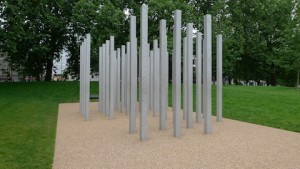 It is ten years since the horrifiying 7/7 suicide bombings in central London; that killed 56 people, including the four attackers. With this in mind, we bring you an extract from Tariq Ali’s
Rough Music
, a corruscating attack on the state of Tony Blair’s Britain first published in 2005.
It is ten years since the horrifiying 7/7 suicide bombings in central London; that killed 56 people, including the four attackers. With this in mind, we bring you an extract from Tariq Ali’s
Rough Music
, a corruscating attack on the state of Tony Blair’s Britain first published in 2005.
In this extract, Ali admonishes not only the perpretators of the attacks but also those in power who apportioned the blame of these suicide attacks to Muslim communities and the poverty and religious fundamentalism that lurked within. Ali argued, however, that evidence points to religion used only as a means in which terrorist groups garner support to serve much broader strategic targets, such the urgent withdrawal of Western government’s military forces from the countries they consider their homeland.
Ten years on, Britain and its Western allies are culpabie in causing and exacerbating many of the world’s current conflicts. The crushing of civil liberties and the deliberate targeting of Muslim communities in Western countries, in order to root out ‘extremism’, has further marginalised and angered Muslims. Further afield, the sectarian violence in Iraq, caused by British and American occupation, and endemic corruption in Afghanistan, a country lead for just under ten years by a stanch ally of the West, Hamid Karzai. There have been extensive arms deals with Saudi Arabia, currently spearheading military attacks in Yemen, and Libya, embroiled in a nasty civil war ever since the Arab Spring and the fall of Gadaffi in 2011. It doesn’t bear thinking about what intervention might do within the sheer complexity of Syria and the relentless march of Islamic State.
Ali’s essay is a timely reminder of lessons that the West have failed to heed time and time again.
British politicians have learnt from their American superiors that there is one continent to which they can always turn to burnish their do-gooding credentials in times of war or scandal. If Africa did not exist, rich-world governments would have to invent it. The need was great in July 2005. The war in Iraq was going badly, the EU Constitution débâcle had been an embarrassingly large-scale defeat for Blairite free-marketism on the continent, and the British economy was starting to splutter. As the leaders of the G8 gathered for their Summit in Scotland, hosted by Blair, Iraq was naturally banished from the public agenda and anti-war marchers were banned from the barricaded Gleneagles Hotel. The Summit was designed as a feel-good-do-nothing affair. Poverty in Africa—in large part the result of vicious IMF and World Bank restructuring programmes, as well as the debt burdens imposed by those institutions—would be magicked away, as if in a rerun of the miracle of loaves and ?shes.
Blair’s favourite courtier from the musical world, Bob Geldof, was hired to organize an extravaganza in Edinburgh that would hopefully attract the crowds away from anti-war protests. Geldof is a specialist in make-the-locals-feel-good events. He certainly makes the Prime Minister feel loved. A photograph of Blair and Geldof in the press showed a ?irtatious musician resting his head on the Dear Leader’s shoulder. I was pleased to see that the photo opportunities with Gordon Brown were more sober. Geldof, like the G8 leaders, is deeply concerned about poverty in Africa, and organizes a concert to prove it every twelve years. But the razzmatazz would soon be upstaged in London
On 7 July 2005 a deadly quartet of three young Yorkshire Muslims and a Jamaican-born co-religionist from Aylesbury, their rucksacks loaded with explosives, blew themselves up more or less simultaneously, three of them at different points on the London Underground and one on a bus in Russell Square, not far from the British Museum. Fifty-six people died as a result and a hundred or so were wounded. Coming at the height of the rush-hour, the victims of this senseless carnage were mainly young of?ce-workers; statistically, it’s unlikely that more than one in ?ve of them voted for Blair. It was a horrendous act, politically and morally unjusti?able. But there was no mystery as to why it had happened. Before the invasion, the Mayor of London, Ken Livingstone, had warned Blair of the consequences of dragging the country into an unpopular war: ‘An assault on Iraq will in?ame world opinion and jeopardize security and peace everywhere. London, as one of the major world cities, has a great deal to lose from war and a lot to gain from peace, international cooperation and global stability.’
This was not, of course, the ?rst time that London and other British cities had been targeted by bombers opposing the British government. After ‘Bloody Sunday’, the IRA brought the Irish war to mainland Britain for the last phase of ‘the troubles’. They came close to blowing up Margaret Thatcher and her Cabinet when they bombed the Grand Hotel in Brighton during a Conservative Party conference. Later, IRA members ?red a missile from a moving van at 10 Downing Street. London’s ?nancial quarter was also hit, causing immense damage to property. The successive Prevention of Terrorism Acts passed by the House of Commons, the introduction of ‘internment without trial’ and the general massacring of civil liberties both in Northern Ireland and on the mainland did nothing to prevent these and other attacks. There were lessons to be learnt from this history, as I argued in a short comment for the Guardian the day after the July 7th bombings:
The majority of Londoners (as the rest of the country) were opposed to the war in Iraq. Tragically, it is they who have suffered the blow and paid the price for the re-election of Blair and a continuation of the war. Ever since 9/11, I have been arguing that the ‘war against terror’ is immoral and counterproductive. It sanctions the use of state terror—bombing raids, tortures, countless civilian deaths in Afghanistan and Iraq—against Islamo-anarchists whose numbers are small, but whose reach is deadly. The solution then, as now is political, not military. The British ruling elite understood this perfectly well in the case of Ireland. Security measures, anti-terror laws rushed through Parliament, identity cards, a general curtailment of civil liberties of British citizens will not solve the problem. If anything, they will push young Muslims in the direction of a mindless violence.
The real solution lies in immediately ending the occupation of Iraq, Afghanistan and Palestine. Just because these three wars are reported sporadically and mean little to the everyday life of most of Europe’s citizens, this does not mean that the anger and bitterness they arouse in the Muslim world and its diasporas is insigni?cant. Establishment politicians have little purchase with the young and this applies especially strongly in the Arab world. As long as Western politicians wage their wars and their colleagues in the Muslim world watch in silence, young people will be attracted to the groups who carry out random acts of revenge. At the beginning of the G8, Tony Blair suggested that ‘poverty was the cause of terrorism’. This is not so. The principal cause of this violence is the violence that is being in?icted on the people of the Muslim world. The bombing of innocent people is equally barbaric in Baghdad, Jenin, Kabul as it is in New York, Madrid or London. And unless this is recognized the horrors will continue.(1)
The following day I was denounced in the Guardian Letters column with an unsurprising degree of illiberal acrimony; what was more surprising was that not a single letter appeared in support of my position, since during the course of the next three days I received an exceptionally large email inbox, some 672 messages. Usually, after a public intervention I receive a maximum of a hundred or so missives and the supporters:critics ratio averages at 80:20. On this occasion it was 95:5. It was obvious that many people had immediately linked the bombings to the outrages committed by the Anglo-American occupiers of Afghanistan and Iraq, and that they did not like the way debate on the subject was being sidelined.
This linkage between the horri?c London bombings and the horrors of the Middle East was exactly what the political-media bubble was determined to prevent. Here the propaganda machinery was in full ?ow. The regime and its apologists united in blocking out any mention of a connection with Iraq. It took the Liberal Democratic leader a whole week to mutter something to the effect that it was possible that there might be some link to the war in Iraq. He was immediately denounced by Downing Street for breaching the consensus agreed inside the bubble.
From Gleneagles, Blair’s immediate response to the bombings had been predictably Bushite. Barbarians were attacking ‘our civilization’. No other explanation would be countenanced. Why were these ‘barbarians’ not targeting Paris or Berlin? Why Madrid and London? Could it be that these appalling acts had something to do with the continuing war in Iraq where the ‘civilized’ conquerors do not even bother to count the Iraqi dead? That these questions were not con?ned to anti-war activists was con?rmed by Alan Cowell, writing in the New York Times on 8 July 2005:
Perhaps the crudest lesson to be drawn was that, in adopting the stance he took after the Sept. 11 attacks, Mr. Blair had ?nally reaped the bitter harvest of the war on terrorism—so often forecast but never quite seeming real until the explosions boomed across London. The war in Iraq has been increasingly unpopular here, with taunts that Mr. Blair had become President Bush’s poodle. The anger about Iraq led to Mr. Blair’s shaky showing in the May elections: a third term with a severely reduced majority.
Now, as long predicted and feared, his support of the war appears to have cost British lives at home. Thursday was a day of rallying behind the leader, but there were indications that the bombing could take a political toll.
The following week, an opinion poll—unusually, tucked away on an inside page of the newspaper that had commissioned it—revealed that 66 per cent of the population believed there was a link between Blair’s decision to invade Iraq and the terror attacks in London (2). Tame journalists and Labour ministers who had justi?ed the war—Straw, Reid and the rest—still refused to accept there was any connection between the savage chaos in Baghdad and the bombs in London. On 26 July, Blair arrogantly reiterated his position:
We are not having any of this nonsense about [the bombings having anything] to do with what the British are doing in Iraq or Afghanistan, or support for Israel, or support for America, or any of the rest of it. It is nonsense and we have to confront it as that.
Yet Foreign Of?ce of?cials had warned the government in May 2004, over a year before the the bombs hit London, that the war in Iraq was stoking the ?res of extremism in Muslim communities in Britain. In a letter addressed to the Cabinet Secretary, Sir Andrew Turnbull, the Permanent Under-Secretary at the Foreign Of?ce Michael Jay had spelled it out for Downing Street:
Other colleagues have ?agged up some of the potential underlying causes of extremism that can affect the Muslim community, such as discrimination, disadvantage and exclusion. But another recurring theme is the issue of British foreign policy, especially in the context of the Middle East Peace Process and Iraq… Experience of both ministers and of?cials working in this area suggests that the issue of British foreign policy… plays a signi?cant role in creating a feeling of anger and impotence amongst especially the younger generation of British Muslims . . . this seems to be a key driver behind recruitment by extremist organizations (e.g. recruitment drives by groups such as Hizb ut-Tehrir and al Muhajiroon).(3)
The political motives of suicide bombers have been underlined by Robert Pape, a US academic working on a University of Chicago project on suicide terrorism. Pape has analysed such attacks in very great detail and produced a serious and sober study of suicide terrorism over the past 25 years. It should be compulsory reading for members of the British government. Pape analyses 315 suicide terror attacks during this period and concludes that ‘there is little connection between suicide terrorism and Islamic fundamentalism or any of the world’s religions’. Instead:
what nearly all suicide terrorist attacks have in common is a speci?c secular and strategic goal: to compel modern democracies to withdraw military forces from the territory that the terrorists consider to be their homeland. Religion is rarely the root cause, although it is often used as a tool by terrorist organizations in recruiting and in other efforts in service of the broader strategic objective.(4)
This analysis is con?rmed by the stories of the July 7th bombers, and of the pathetic group that apparently attempted further London Transport bombings on July 21st, but whose rucksacks failed to explode. Osman Hussain, suspected of trying to set off an explosion at Warren Street Station on July 21st, ?ed the country by Eurostar and was arrested in Italy a few weeks later. According to La Repubblica, he told investigators that the would-be bombers of July 21st had psyched themselves for the attacks by watching ‘?lms on the war in Iraq… Especially those where women and children were being killed and exterminated by British and American soldiers…of widows, mothers and daughters that cry.’
The discrepancy between the price tag the Western media place on their own citizens—the photos of smiiing faces, the intimate details recalled by friends and family—and on the tens of thousands of those nameless, uncounted bodies shot, tortured or blown up from 30,000 feet on the command of Bush and Blair, could hardly be starker. It is this that fuels the anger.
Further direct evidence of the political motives of the terrorists came in the ghoulish video tape left behind by Mohammed Siddique Khan, one of the July 7th suicide terrorists, and later broadcast by al-Jazeera TV. (His friends in Dewsbury, of whom there are many since he was a popular youth worker, claimed the tape was a fake. Perhaps deep down they did not want to believe that their friend had become a terrorist or maybe the denial was a way of protecting themselves from hostile journalists.) Speaking in a strong Yorkshire accent, Siddique Khan stated: ‘Your democratically elected governments continuously perpetuate atrocities against my people and your support of them makes you directly responsible.’ With Blair now off holidaying at Cliff Richard’s luxury villa in Barbados, the British government response was left to Foreign Secretary Jack Straw, who still refused to accept this, insisting that British support for Bush had not made the country more vulnerable to terrorism.
To explain the cause is not to justify the consequence, but Blair and his toadies should be forced to confront what is now a widely held view across the political divide: the central British role in the occupations of Iraq and Afghanistan and, more broadly, Britain’s unquestioning support for the US–Israeli war drive in the Middle East and across central Eurasia, has blown back in the shape of the London terrorist attacks. The reason the Prime Minister and his close associates in government and the media cannot admit the link is not dif?cult to understand. To accept that British foreign policy is even partially responsible means to accept that Blair, Straw and the rest of the supine Cabinet and the of?cial Opposition are to blame for what is taking place. If Blair were to do so he would be immediately compelled to resign.
Notes
(1) ‘The Price of Occupation’, Guardian, 8 July 2005.
(2) Guardian, 19 July 2005.
(3) Martin Bright, ‘Leak shows Blair told of Iraq war terror link’, Observer, 28 August 2005.
(4) Robert Pape, Dying to Win: The Strategic Logic of Suicide Terrorism, New York 2005.
– Rough Music is available to purchase on the Verso website with 40% off the retail price of £5.99.
Tariq Ali's Blog
- Tariq Ali's profile
- 798 followers


